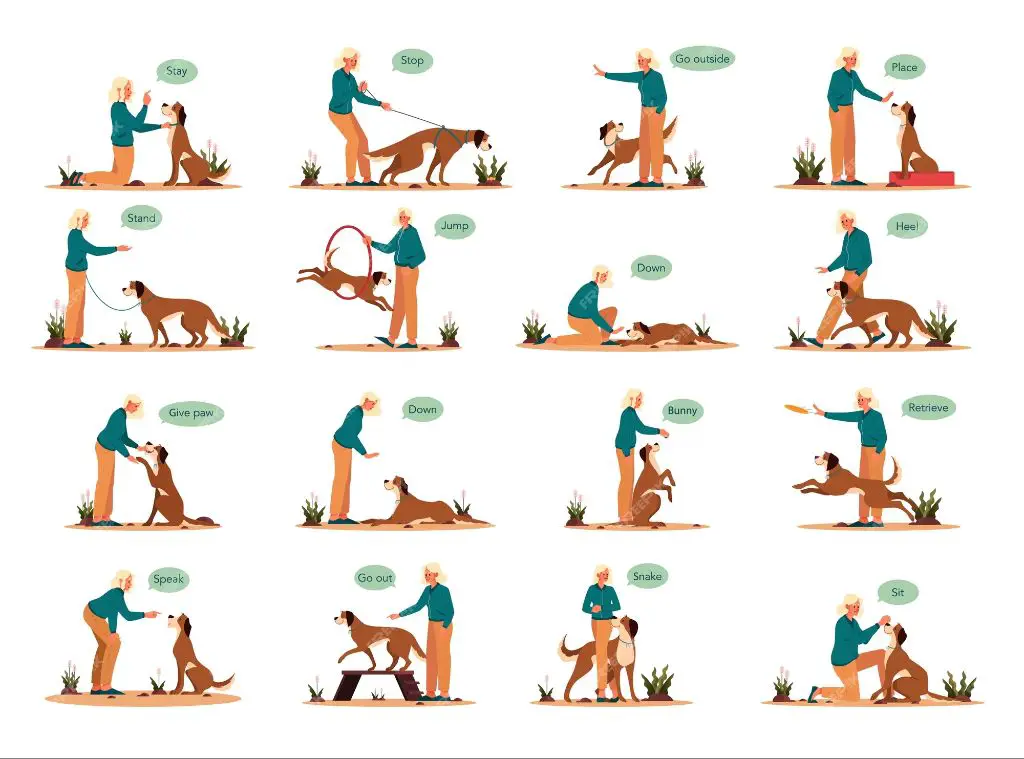Introduction
“Woof, woof, woof!” The shrill barking pierced the tranquility of the neighborhood at 6AM every morning. Maria groaned and pulled the pillow over her ears as her neighbor’s dog, Pepper, began his daily barking marathon. This had been going on for weeks, and Maria was at her wit’s end. She loved dogs, but Pepper’s ceaseless noise was fraying her last nerve.
Excessive and unnecessary barking is a common challenge for dog owners. Dogs bark for many reasons, some harmless and others indicating an underlying issue. In Pepper’s case, his owners were rarely home, leaving him alone for long stretches. Pepper’s barking derived from boredom, loneliness, and pent-up energy. Thankfully, with some training, enrichment, and exercise, Pepper’s owners were eventually able to curb his excessive vocalizations. Not all cases are as easily resolved, however. Let’s explore some of the main causes of excessive barking in dogs and strategies to quiet a chronically noisy canine.
Reasons Dogs Bark Excessively

Dogs bark for a variety of reasons, and excessive barking can often be attributed to common triggers like boredom, anxiety, attention-seeking, or health issues.
Boredom
Dogs are intelligent, energetic animals that need mental stimulation and physical activity. If your dog is bored and has pent up energy, they may bark excessively as an outlet. Lack of exercise, toys, and one-on-one playtime with owners can lead to boredom barking.
Try providing more interactive toys, taking your dog on regular walks or jogs, and spending more positive playtime together. Rotating toys to make them seem new again can also help engage your dog mentally and physically.
Anxiety/Stress
Dogs are creatures of habit and can experience anxiety or stress when their routine is disrupted. Major changes in the household, separation from owners, conflicts with other pets, or exposure to phobias can also trigger anxious barking.
Using calming aids like pheromone diffusers, providing a safe space, exposing your dog gradually to stressors, and maintaining consistent routines can help manage anxiety barking.
Seeking Attention
Dogs are pack animals that crave attention and interaction with their human families. Excessive barking can sometimes be your dog’s way of seeking your attention and asking you to engage with them.
Make sure to give your dog daily one-on-one quality time. Reinforce quiet behavior with praise and treats. Ignore attention-seeking barks, and reward your dog when they are calm and relaxed.
Boredom

One of the most common reasons dogs bark excessively is boredom. Dogs are intelligent, energetic animals that need physical exercise and mental stimulation. Without enough activity to engage their bodies and minds, dogs can become restless and bored.
It’s important for dog owners to provide their pets with adequate physical and mental exercise every day through walks, play time, training sessions, and puzzle toys. The amount of exercise needed varies by breed, but most dogs should get 30-60 minutes of activity per day. High energy breeds like Border Collies may require closer to 2 hours of exercise daily.
In addition to physical activity, dogs need mental stimulation to prevent boredom barking. Providing puzzle toys that dispense treats or kibble can occupy your dog’s mind. Rotate different puzzle toys to keep your dog engaged and challenged. Food puzzle toys, kongs, snuffle mats, and hide-and-seek games are excellent boredom busters for dogs.
Ensuring your dog gets sufficient physical and mental exercise will help prevent nuisance barking from boredom. A tired dog is a happy, quiet dog!
Anxiety
Anxiety can be a major trigger for excess barking in dogs. Some common anxiety triggers include separation from owners, strange noises, visitors or strangers approaching the home, and unfamiliar environments or situations. Dogs may bark, whine, pace, and pant when feeling anxious or stressed.

Creating a calming environment can help relieve an anxious dog’s barking. Making sure they have a comfortable, designated safe space, playing calming music, using pheromone diffusers, and minimizing external stimuli are some tips. Providing activities like puzzles, chews, and training can also help alleviate anxiety by engaging their mind.
In severe cases of anxiety, some dogs may benefit from anti-anxiety medication prescribed by a veterinarian. Medications like fluoxetine and clomipramine can help reduce overall anxiety levels. However, medication should always be used in conjunction with behavior modification training.
Attention-Seeking
Some dogs bark excessively for attention. They learn that barking gets them what they want – your attention. Every time you respond to attention-seeking barking by interacting with your dog, you reinforce the behavior and teach them to keep doing it.
To curb attention-seeking barking:
- Ignore the barking completely. Don’t speak to, touch, or even look at your dog when they demand your attention by barking.
- Praise and reward when your dog is quiet. This reinforces the behavior you want.
- Redirect your dog’s energy into more positive outlets. When they start demanding attention, ask them to perform commands like “sit” or “down” and reward with praise or toys when they comply.
With time and consistency, your dog will learn that quiet behavior gets rewarded while barking is ignored. Be patient, as this can take weeks or months to fully kick in.
Health Issues
Excessive barking can sometimes be caused by an underlying health issue that is causing the dog pain or discomfort, which results in them vocalizing excessively. Some common health problems in dogs that can lead to excessive barking include:
- Ear infections – An infection in the ear can be very painful and cause dogs to bark, whine or cry.
- Dental disease – Problems with teeth and gums can be very uncomfortable and make dogs bark and whimper.
- Arthritis – Joint pain from arthritis can make normal movements painful, leading to barking.
- Gastrointestinal issues – Conditions like colitis can cause abdominal pain and barking.
If your dog suddenly starts barking excessively, it’s important to schedule a veterinary exam to rule out any medical causes. The vet will check the dog’s ears, mouth, joints, abdomen and other areas that could be causing pain or discomfort. Treatment of the underlying condition often resolves excessive barking.
Regular veterinary care is also key to identify and address health issues early before they progress and cause excessive vocalization. Keep up with recommended preventative care and exams to keep your dog happy and healthy.
Training Techniques
There are several humane and effective training techniques to help curb excessive barking in dogs:

Positive Reinforcement
This involves rewarding your dog with treats and praise when they are quiet. You teach them that being quiet results in rewards. Over time, they learn to associate being quiet with positive outcomes.
Desensitization
If your dog barks due to specific triggers like doorbells or passing cars, you can desensitize them to these triggers through gradual exposure. Start with a very low level of the trigger from a distance while rewarding them for calm behavior. Slowly work your way up to normal levels of exposure.
Distraction/Redirection
When your dog starts barking excessively, distract them with a toy or command like “sit.” Redirect their energy into a positive activity incompatible with barking. Over time, they learn barking gets no attention, while good behavior gets rewarded.
When to Seek Professional Help
If your dog’s barking has become excessive and is significantly impacting your life or your neighbors, it may be time to seek professional help. Here are some signs it’s time to bring in a trainer or behaviorist:
- Your dog barks for hours on end throughout the day and night.
- Neighbors have complained multiple times about the barking.
- You’ve tried training techniques and behavior modifications unsuccessfully.
- The barking occurs even when your dog’s needs are met (sufficient exercise, toys, etc.).
- Your dog barks at the slightest noise or movement.
- Your dog’s barking is disruptive to your work or sleep.
Working with an accredited dog trainer or veterinary behaviorist can help identify the underlying cause of excessive barking and develop an effective treatment plan. Trainers use techniques like counterconditioning and desensitization to modify barking behavior. Some options to discuss with a professional include:
- Behavior therapy and modification plans
- Prescription medications or pheromone collars
- Anti-bark collars as a last resort under supervision
Seeking professional help is particularly important if your dog’s barking may be linked to aggression, anxiety, fear, or compulsive disorders. Excessive barking can be resolved with time, patience, and the right approach. Working with an experienced trainer can make the process much easier and more effective.
Being a Responsible Owner
Owning a dog comes with great responsibility. As a dog owner, it is important to provide your pet with proper socialization, exercise, enrichment, and consideration for neighbors when it comes to noise.
Socializing and exercising your dog regularly helps curb problem barking. Dogs that receive adequate physical and mental stimulation are less likely to bark out of boredom or frustration. Take your dog on daily walks, trips to the dog park, or play fetch in the backyard. Introduce your dog to new sights, sounds, people, and other dogs in a positive, controlled way.
Providing enrichment such as puzzle toys, chews, and opportunities for training and learning also helps engage your dog’s mind and reduce excessive vocalization. Rotate different enrichment items to keep your dog interested and challenged.
Be considerate of neighbors when it comes to your dog’s barking. Don’t leave your dog outside unattended for long periods, especially at times when barking is most disruptive such as early morning or late at night. Bring your dog inside if they start barking excessively. Let your neighbors know you are working on training, and apologize for any inconvenience.
With proper care, training, and management, you can curb excessive barking and be a responsible dog owner.
Conclusion
In closing, an excessively barking dog can be frustrating, but try to have patience. With consistent training and meeting your dog’s needs for physical and mental stimulation, you can teach them to be quiet when appropriate. It may take time and effort, but you’ll reap the rewards of having a calmer, happier dog.
Remember that implementing training techniques takes patience and consistency. Don’t give up if you don’t see immediate results. With time, your efforts will pay off. Focus on rewarding and reinforcing quiet behavior rather than scolding barking. This positive reinforcement approach gets better results in the long run.
By meeting your dog’s needs and setting them up for success with proper training, you can curb excessive barking. With your thoughtful effort and commitment, you’ll build a stronger bond with your furry friend.